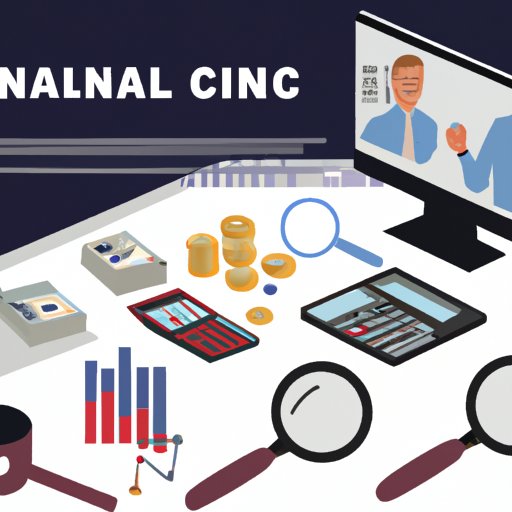Introduction
A financial crimes investigator is an individual who is responsible for investigating cases of financial fraud and other related crimes. They are tasked with gathering evidence and preparing reports that can be used in court proceedings. This profession requires individuals to possess strong analytical and communication skills, as well as the ability to work well under pressure. In this article, we will explore what it takes to become a financial crimes investigator, including the necessary education and training, as well as the skills required to be successful in this field.
Education and Training Necessary to Become a Financial Crimes Investigator
The first step in becoming a financial crimes investigator is to obtain the necessary education and training. Most employers prefer applicants who have obtained a degree in criminal justice, accounting, or finance. Additionally, some employers may require applicants to have a certification from a recognized professional organization such as the Association of Certified Fraud Examiners (ACFE). Other types of training may include courses in computer forensics, fraud investigation techniques, and money laundering.

Role and Responsibilities of a Financial Crimes Investigator
The role and responsibilities of a financial crimes investigator vary depending on the employer. Generally, they are responsible for investigating cases of financial fraud, collecting and analyzing evidence, preparing reports, and testifying in court. They must be able to identify patterns of fraud and develop strategies to investigate these cases. Additionally, they must be able to communicate effectively with other law enforcement personnel and victims of financial crimes.
Skills Required to be Successful in the Field
In order to be successful as a financial crimes investigator, it is important to possess certain skills. These skills include analytical thinking, communication, and interpersonal skills. Analytical thinking involves the ability to analyze complex data and draw meaningful conclusions. Communication skills are important when working with other law enforcement personnel and victims of financial crimes. Interpersonal skills are necessary when interviewing witnesses and suspects.

Challenges Faced by Financial Crimes Investigators
Financial crimes investigators often face a number of challenges in their line of work. These include long hours, stressful situations, and difficult cases. Additionally, they must be able to remain objective and impartial when conducting investigations. This can be difficult, as financial crimes often involve complex and sensitive matters.

Career Opportunities for Financial Crimes Investigators
Financial crimes investigators can find employment in both the private and public sectors. In the private sector, they may work for banks, insurance companies, or large corporations. In the public sector, they may work for local, state, or federal law enforcement agencies. Additionally, they may find employment with government regulatory bodies, such as the Securities and Exchange Commission (SEC).
Tips on How to Prepare for a Career as a Financial Crimes Investigator
To prepare for a career as a financial crimes investigator, it is important to network with other professionals in the field. Additionally, it is beneficial to build experience by volunteering or interning with a law enforcement agency. Finally, it is important to develop expertise in areas such as computer forensics, money laundering, and fraud investigation techniques.
Conclusion
Becoming a financial crimes investigator requires a combination of education, training, and skills. Individuals must possess strong analytical thinking and communication skills, as well as the ability to work well under pressure. To prepare for a career in this field, individuals should network with other professionals, build experience, and develop expertise in relevant areas. There are a variety of career opportunities available in both the private and public sectors.
(Note: Is this article not meeting your expectations? Do you have knowledge or insights to share? Unlock new opportunities and expand your reach by joining our authors team. Click Registration to join us and share your expertise with our readers.)
